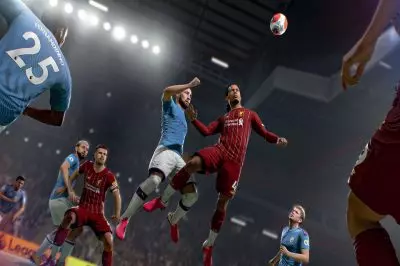 Currently, not only sports betting operators but also everyone interested in the industry have their eyes on a class-action lawsuit, which was filed against Electronic Arts by three video game players in November.
Currently, not only sports betting operators but also everyone interested in the industry have their eyes on a class-action lawsuit, which was filed against Electronic Arts by three video game players in November.
The EA Sports division of Electronic Arts specializes in developing sports video game franchises such as FIFA Soccer, Madden NFL football and NHL hockey games. The players who filed their class-action lawsuit against the company in the US District Court of California claim that the video games in question are designed in a way that allows adjusting the difficulty of games depending on the skill levels of every player individually. However, they allege that by making such adjustments to the skill level, players are forced to purchase more loot boxes that are called “Player Packs” by the company.
As CasinoGamesPro has previously reported, so-called Player Packs provide players with the opportunity to access superstar athletes and use them in the Ultimate Team mode of the game in order to improve the performance of their team.
For the time being, Electronic Arts has not responded to the three players’ lawsuit, with its initial response being expected on January 11th.
According to expectations, the video game company will probably like the court to compel the plaintiffs to have their claims set in mandatory arbitration individually, and not in a class-action lawsuit. For the time being, the user agreement of EA, to which players agree, contains a provision under which they agree to have any possible controversy decided via arbitration under a modified version of the Consumer Arbitration Rules of the American Arbitration Association, and not by a class-action lawsuit.
Many Video Game Companies Use Arbitration Clauses to Solve Legal Disputes
 Still, despite the fact that arbitration clauses are allowed under the Federal Arbitration Act, there have been some cases of customers who managed to successfully circumvent the arbitration clauses.
Still, despite the fact that arbitration clauses are allowed under the Federal Arbitration Act, there have been some cases of customers who managed to successfully circumvent the arbitration clauses.
There have been many changes over recent years. In 2017, the Consumer Financial Protection Bureau (CFPB) issued a rule, under which the companies’ ability to force consumers into mandatory individual arbitration was limited.
Alas, that rule had a short life. Later in 2017, the Senate called for the Congressional Review Act to vote a repeal of the rule as part of a measure that was given the green light by President Donald Trump. Now, some analysts have speculated that the President-elect Biden and his administration may make an attempt to issue a similar rule in an effort to restrict the companies’ ability to avoid class-action lawsuits and solve any issues that might occur through mandatory arbitration.
The new Player Pack lawsuit against Electronic Arts could affect many businesses. According to analysts, the company will almost certainly ask the court to enforce the abovementioned arbitration agreement. The individuals who filed the lawsuit would probably respond that the arbitration clause is unenforceable under California law, with the argument having previously succeeded in California courts.
The potential arbitration impact of the lawsuit is exactly the reason why many businesses, including sports betting companies, will keep an eye on the ongoing lawsuit faced by Electronic Arts. In fact, it could be particularly relevant to sports betting operators that also almost always rely on arbitration clauses.